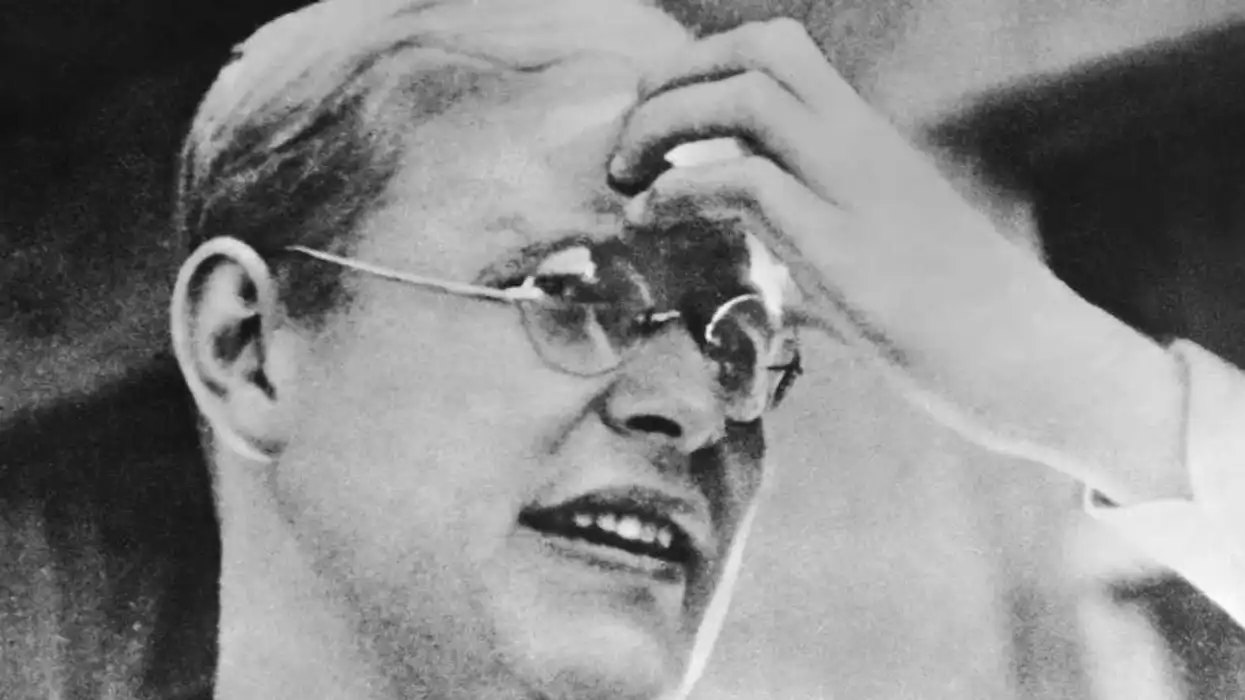Story by the Associated Press; curated by Dave Urbanski
PRESCOTT, Ariz. (AP) — A three-month investigation into the June deaths of 19 firefighters killed while battling an Arizona blaze cites poor communication between the men and support staff, and reveals that an airtanker carrying flame retardant was hovering overhead as the men died.
 Unidentified members of the Granite Mountain Interagency Hotshot Crew from Prescott, Ariz. Some of the men in this photograph were among the 19 firefighters killed while battling an out-of-control wildfire near Yarnell, Ariz., on Sunday, June 30, 2013, according to Prescott Fire Chief Dan Fraijo. (Credit: AP)
Unidentified members of the Granite Mountain Interagency Hotshot Crew from Prescott, Ariz. Some of the men in this photograph were among the 19 firefighters killed while battling an out-of-control wildfire near Yarnell, Ariz., on Sunday, June 30, 2013, according to Prescott Fire Chief Dan Fraijo. (Credit: AP)
The 120-page report released Saturday found that all procedures were followed and assigned little of blame for the worst firefighting tragedy since Sept. 11, 2001.
All but one member of the Granite Mountain Hotshots crew died June 30 while protecting the small former gold rush town of Yarnell, about 80 miles northwest of Phoenix, from an erratic lightning-sparked wildfire.
While maintaining that all guidelines were followed, the investigation found improperly programmed radios, vague updates, and a 30-minute communication blackout just before the flames engulfed the men.
The report provides the first minute-to-minute account of the fatal afternoon. The day went according to routine until the wind shifted, pushing a wall of fire that had been receding from the hotshots all day back toward them.
After that, hotshots failed to communicate their intentions to the command center outside the burn zone. Their colleagues thought the hotshots had decided to wait out the weather change in the safety of an already blackened area.
They were not heard from again until five minutes before they deployed their emergency shelters, which was more than a half hour after the weather warning was issued. They had left the black zone, though they had no reason to doubt its safety, and dropped into a densely vegetated area, heading toward a ranch, according to the report. The report states that they failed to perceive the "excessive risk" of repositioning to this stop to continue fighting the fire.
"Nobody will ever know how the crew actually saw their situation, the options they considered or what motivated their actions," the report said.
The Arizona State Forestry Division presented the roughly 120-page report to the men's families ahead of a news conference Saturday morning in Prescott.
The fire caused little immediate concern because of its remote location and small size when it began June 28. But the blaze quickly grew into an inferno, burning swiftly across pine, juniper and scrub oak and through an area that hadn't experienced a significant wildfire in nearly 50 years.
 The Yarnell Hill Fire burns in Glenn Ilah near Yarnell, Ariz., on Sunday, June 30, 2013. (Credit: AP)
The Yarnell Hill Fire burns in Glenn Ilah near Yarnell, Ariz., on Sunday, June 30, 2013. (Credit: AP)
The 20-member Granite Mountain Hotshots team arrived early on the morning of June 30 and headed into the boulder-strewn mountains. About nine hours later, the crew radioed that they were trapped by flames and deploying emergency shelters. Only one crew member who was assigned as the lookout survived.
 Firefighter Brendan McDonough embraces a mourner near the end of a candlelight vigil in Prescott, Ariz., on July 2, 2013. McDonough was the sole survivor of the 20-man Granite Mountain Hotshot Crew after an out-of-control blaze killed the 19 near Yarnell, Ariz. (Credit: AP)
Firefighter Brendan McDonough embraces a mourner near the end of a candlelight vigil in Prescott, Ariz., on July 2, 2013. McDonough was the sole survivor of the 20-man Granite Mountain Hotshot Crew after an out-of-control blaze killed the 19 near Yarnell, Ariz. (Credit: AP)
The fire ended up destroying more than 100 homes and burned 13 square miles before it was fully contained on July 10.
No other wildfire had claimed the lives of more firefighters in 80 years, and it was the deadliest single day for fire crews since the terror attacks of Sept. 11, 2001. The Granite Mountain team was unique among the nation's roughly 110 Hotshot crews as the first and only such unit attached to a municipal fire department.
The report said the firefighters didn't anticipate danger when they left the relative safety of a ridge top and dropped down into a bowl surrounded by mountains on three sides, despite warnings of the erratically changing weather that whipped the blaze into an unpredictable inferno.
At one point, officials asked for half of the available western U.S. heavy air tanker fleet — six planes — to try to control the blaze. Five weren't deployed because of the limited number in the nation's aerial firefighting fleet and the dangerous weather conditions at the time. One plane was heading to Arizona from California but engine problems forced it to turn back.
Forestry officials have said that even if the planes had been available, winds were so strong they couldn't have been used to save the firefighters' lives.
Some family members hope the investigation will bring closure. Others say it will do nothing to ease their pain.
 Colleen Turbyfill, mother of Travis Turbyfill who was a member of the Granite Mountain Interagency Hotshot Crew that were killed battling a wildfire near Yarnell, Ariz., Sunday looks at photos of her son on Thursday, July 4, 2013 in Prescott, Ariz. (Credit: AP)
Colleen Turbyfill, mother of Travis Turbyfill who was a member of the Granite Mountain Interagency Hotshot Crew that were killed battling a wildfire near Yarnell, Ariz., Sunday looks at photos of her son on Thursday, July 4, 2013 in Prescott, Ariz. (Credit: AP)
"No matter what the report says, it won't bring him back," Colleen Turbyfill said of her son, Travis. "I miss him, and it's unbearable pain. It doesn't go away. Sometimes I can't breathe, but this report isn't going to help that one way or another."
Theis KTVK-TV report filed Friday offers a look back at the fire, the loss of life, and the feelings of survivors as they awaited the report's findings:
--
[related]

 Unidentified members of the Granite Mountain Interagency Hotshot Crew from Prescott, Ariz. Some of the men in this photograph were among the 19 firefighters killed while battling an out-of-control wildfire near Yarnell, Ariz., on Sunday, June 30, 2013, according to Prescott Fire Chief Dan Fraijo. (Credit: AP)
Unidentified members of the Granite Mountain Interagency Hotshot Crew from Prescott, Ariz. Some of the men in this photograph were among the 19 firefighters killed while battling an out-of-control wildfire near Yarnell, Ariz., on Sunday, June 30, 2013, according to Prescott Fire Chief Dan Fraijo. (Credit: AP)






